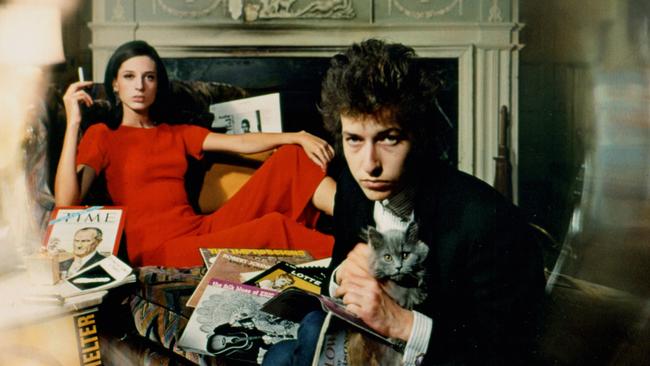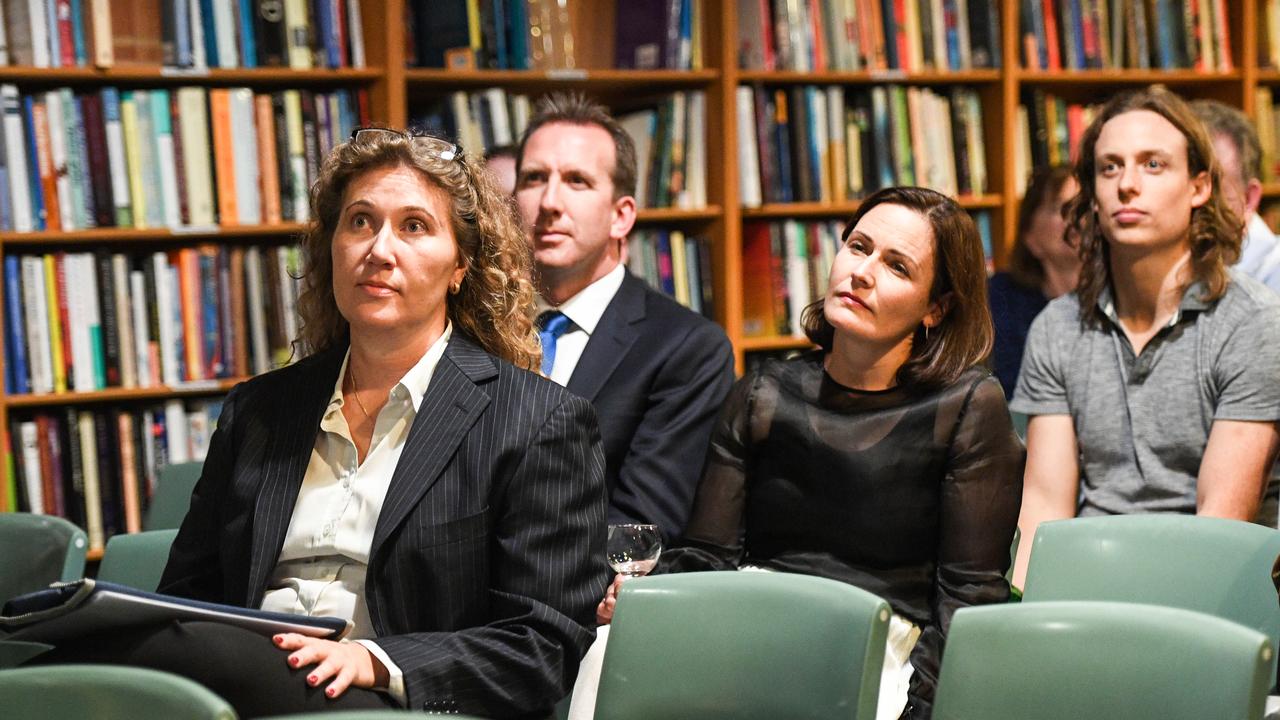Bob Dylan’s friend Sally Grossman stayed silent on rock’s most curious accident
Sally Grossman, wife of Bob Dylan’s manager Albert, stayed silent for 55 years about the singer’s legendary motorcycle accident.

OBITUARY
Sally Grossman, businesswoman
Born August 22, 1939, Manhattan, New York; died, March 11, Woodstock, New York. Aged 81
Sally Grossman — the original Lady in Red — was a keeper of secrets, one the oddest incident in rock music. As much as she ever said about it was uttered on July 29, 1966.
By then, Grossman was known in the expanding circles of what had been New York’s Greenwich Village folk scene of the early 1960s and became the American folk revival that spread around the globe until a four-man tidal wave from Liverpool wiped it away. As Sally Buehler, she had dropped out of an English literature course at Hunter College.
She was more interested in the folk music scene then bubbling under a veneer of urban bohemia, finding expression in small clubs and coffee shops on Manhattan’s western fringe. That folk rebirth was almost snuffed out in the McCarthy era with such performers assumed to be communists.
America grew up and the folk scene flowered in clubs called Café Wha?, Gerde’s Folk City and The Bitter End. In January, 1961, 19-year-old Bob Dylan drove into town from Wisconsin. That night at Café Wha? he sang a few old songs and told the scattering of locals that he’d been “Followin’ in Woody Guthrie’s footsteps”.
Buehler has never said whether she was there that night, but she was waiting tables there at the time. A regular at some of these tiny venues was a flabby and rudely forceful Chicago entrepreneur named with aptronymic precision Albert Grossman. He had launched a similar venue in his home town, and managed some of his preferred performers, one of whom was Joan Baez. He founded the Newport Folk Festival in 1959 and two years later put together three solo Greenwich Village artists he knew — Peter (Yarrow), Paul (Stookey) and Mary (Travers). Their hits from 1962 — Lemon Tree, If I Had a Hammer, Puff the Magic Dragon — flowed freely.
Grossman married Buehler, signed up Dylan and, in a brilliant act of cross-promotion, had Peter, Paul and Mary sing the Dylan songs — Blowin’ In The Wind and Don’t Think Twice, It’s Alright — radio programmers would not. Soon his empire included John Lee Hooker, Gordon Lightfoot and Richie Havens and would embrace The Band, Jesse Winchester, Janis Joplin and Todd Rundgren.
The Grossmans spent a weekend in Yarrow’s mother’s house in a small artsy village in upstate New York. It changed them and would change Woodstock. Soon the Grossmans had a house there. So did Dylan. So too members of The Band who, in a luridly painted bungalow, wrote and played songs with Dylan that would become the momentous album Music From Big Pink. The Basement Tapes would follow, entrusted to Sally in a wooden box, but not to be released.
The Grossmans started two cafes, planned a theatre, bought a home and then built the Bearsville studios at which were recorded some of the most famous rock albums, not least of which was Bat Out of Hell.
But Woodstock was about Dylan. He stayed with the Grossmans while writing songs such as Subterranean Homesick Blues, Mr Tambourine Man, It’s All Over Now, Baby Blue and Like A Rolling Stone. Sally fed him and helped organise his Woodstock life, introduced him to a friend, Sara, whom Dylan married, and was there when Daniel Kramer turned up to photograph Dylan for the cover of Bringing It All Back Home on which was born the concept folk rock.
For the picture, the Grossmans’ front room is festooned with strategically placed references to Dylan’s literary interests while he holds a cat and Sally, in a red jumpsuit, reclines, smoking on a chaise lounge — a gift from Travers.
The following year, on July 29, in a story wrapped in incongruity, mystery and contradiction, Dylan and his new wife drive to the Grossmans’ to pick up a motorcycle — maybe his Triumph, but perhaps an AJS 500 Ramblin’ Jack Elliott has given him. The tyres were flat. But maybe not. Heading down Stiebel Road he hit an oil patch, or the sun was in his eyes. With flat tyres it’s doubtful he pulled out of the driveway.
Sara returns with her husband in their station wagon. He has broken his neck. Or he’s concussed. Maybe he’s not badly hurt at all. He is taken to his doctor Ed Thaler’s house — and lives there for weeks. Mrs Thaler reckons he looks fine. There is no ambulance. No hospital. No police. There’s even speculation the new family man is sick of touring and/or the amphetamines that keep him going like a rat in a race. “I had been in a motorcycle accident and I’d been hurt, but I recovered,” Dylan later wrote. He cancelled shows set for Shea Stadium, the Hollywood Bowl, Rome and Italy, and didn’t tour for eight years.
That Friday morning, Sally met the Dylans back at the door. It had been just a few minutes, if that. She makes the only comment she will ever about it. He was “kind of moaning and groaning”, but she saw no sign of injuries. Sally’s other secret, The Basement Tapes, were issued in 2014. Rolling Stone took the opportunity to ask her one last time about the curious accident: “Of course Rolling Stone is going to ask about that. And of course I decline.”



